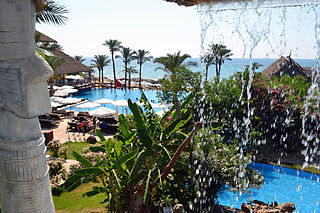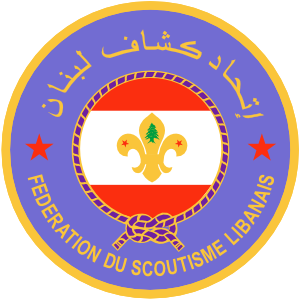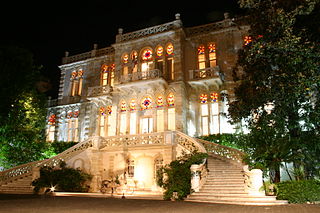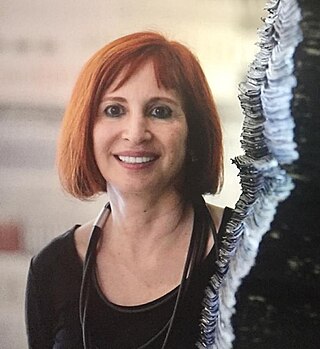
Hassan Nasrallah was a Lebanese cleric and politician who served as the third secretary-general of Hezbollah, a Shia Islamist political party and militia, from 1992 until his assassination in 2024.

Ali Ahmad Said Esber, also known by the pen name Adonis or Adunis, is a Syrian poet, essayist and translator. Maya Jaggi, writing for The Guardian stated "He led a modernist revolution in the second half of the 20th century, "exerting a seismic influence" on Arabic poetry comparable to T.S. Eliot's in the anglophone world."

The culture of Lebanon and the Lebanese people emerged from Phoenicia and through various civilizations over thousands of years. It was home to the Phoenicians and was subsequently conquered and occupied by the Assyrians, the Greeks, the Romans, the Persians, the Arabs, the Crusaders, the Ottomans and the French. This variety is reflected in Lebanon's diverse population, composed of different religious groups, and features in the country's festivals, literature, artifacts, cuisine and architecture of Lebanon. Despite colonization by different entities genetic testing has revealed that 89% of Lebanese people today descend from the Phoenicians. Regardless of religion or colonization which were layers of paint on top.

Damour is a Lebanese Christian town that is 20 km (12 mi) south of Beirut. The name of the town is derived from the name of the Phoenician god Damoros who symbolized immortality. Damour also remained the capital of Mount Lebanon for three centuries.

The Lebanese Scouting Federation, is the national federation of 29 Scouting organisations of Lebanon, founded in 1961. The federation became a member of the World Organization of the Scout Movement in 1947.

Dahieh is a predominantly Shia Muslim suburb in the south of Beirut, in the Baabda District of Lebanon. It has a minority of Sunni Muslims, Christians, and a Palestinian refugee camp with 20,000 inhabitants. It is a residential and commercial area with malls, stores and souks, and comprises several towns and municipalities, including Ghobeiry, Haret Hreik, Bourj el-Barajneh, Ouzai, and Hay El-Saloum. It is north of Rafic Hariri International Airport, and the M51 freeway that links Beirut to the airport passes through it.
Al Akhbar is a daily Arabic language newspaper published in a semi tabloid format in Beirut. The newspaper's writers have included Ibrahim Al Amine, As'ad AbuKhalil, Amal Saad-Ghorayeb, Sharmine Narwani, Pierre Abi Saab, and Amer Mohsen. Until 2015, it also had an English version published on the Internet. It is pro-Hezbollah and in general opposes Saudi Arabia, the United States, the Future Movement, and the March 14 Alliance.

Hezbollah, a Shia Islamist political and militant group based in Lebanon, is driven by an ideology that combines religious, political, and social elements. Founded in the early 1980s, Hezbollah's ideology is deeply rooted in Shia Islam and influenced by the Iranian Revolution. Central to its ideology is opposition to Western influence and Israeli occupation, which it frames as a struggle for justice and liberation, while also positioning Islam as a comprehensive solution to social and political issues. Hezbollah's ideological framework is articulated through its foundational documents, such as the 1985 "Open Letter" and the 2009 "New Manifesto," which emphasize themes of anti-Zionism, anti-Americanism, and the establishment of an Islamic state governed by Sharia. The movement also advocates for pan-Islamism and pan-Arabism, promoting unity among Muslims and Arabs while supporting Iran as a model of sovereignty.

The Sursock Museum, officially known as the Nicolas Ibrahim Sursock Museum, is a modern and contemporary art museum in Beirut, Lebanon.
Barja is a town and municipality in the Chouf District of the Mount Lebanon Governorate in Lebanon. Barja is situated near the Mediterranean coast, 34 kilometers south of Beirut and at the midway point between the latter and Sidon. The town's total land area consists of 729 hectares and its highest point above sea level is documented at 310 meters. Barja had 12,888 registered voters in 2010, and eleven schools with a total of 2,788 students in 2006. Its inhabitants are predominantly Sunni Muslims.
Lebanese Turkmen, also known as the Lebanese Turks, are people of Turkish ancestry that live in Lebanon. The historic rule of several Turkic dynasties in the region saw continuous Turkish migration waves to Lebanon during the Tulunid rule (868–905), Ikhshidid rule (935–969), Seljuk rule (1037–1194), Mamluk rule (1291–1515), and Ottoman rule (1516–1918).
Ali Dirani is a Lebanese graphic and visual artist, musician and drummer.
Beirut Art Center is a space for exhibiting contemporary art in Beirut, Lebanon
Wissam Adnan al-Hassan was a brigadier general at the Lebanese Internal Security Forces (ISF) and the head of its intelligence-oriented Information Branch. Seen as a leading Sunni figure in Lebanon, he was also a key player in the opposition March 14 alliance without having a political position.
Imane Khalifeh was a Lebanese educator and peace activist.
Samer Karam is a Lebanese entrepreneur, investor, author, and activist. He founded Seeqnce, the first startup accelerator in Lebanon, created the Accelerate conference, and has had a leading role in building Lebanon's startup ecosystem and promoting, advising, mentoring, and investing in startup ecosystems across the world. World renowned tech journalist Monty Munford said Karam is "probably the most influential tech person across the Middle East North Africa (MENA) region."

Antoun Sehnaoui is a Lebanese banker and film producer, He is the chairman of the board of the SGBL Group, comprising the Société Générale de Banque au Liban (SGBL), the Société Générale de Banque in Jordan (SGBJ), and financial company Fidus Wealth Management. He is also the chairman of the board of the Compagnie Financière Richelieu, a European banking group comprising Banque Richelieu France, Banque Richelieu Monaco, and Richelieu Gestion. He is also a member of the board of the Lebanese Banking Association, and a member of the Academy of Motion Picture Arts and Sciences.

Nada Sehnaoui is a visual artist and political activist. Her artworks, spanning painting, mixed media works, sculpture and installations, have been widely exhibited internationally, and have been featured in the press and print publications worldwide.
Mazen Marrouf is a Palestinian writer who was born in 1978 in Beirut. He has more than five publications, and translated many novels from Icelandic into Arabic including the novels of several Icelandic writers. In 2019, his short story Jokes for the Gunmen was long-listed the Man Booker International Prize. Some of his poetry works and novels have been translated into many languages including English, French, Italian, and Spanish.

Habib Younes (Arabic: حبيب يونس) is a Lebanese poet, journalist, political writer, and professor at the Faculty of Mass Communication at the Lebanese University, born in 1959. He has sixteen published books in his credit, He considered a reference in Arabic language. He has published dozens of studies and articles on various topics and in various magazines, newspapers and websites. He is a television programs journalist; programs are ranging from politics, history, culture and art. He is also a playwright, and the author of poems sung and composed by Lebanese artists. He also has a number of tunes in his credit, and he is a music critic. He is the recipient of the Human Rights Award, issued by the "Human Rights and Human Rights Organization" in 2004. He is one of the exciting Lebanese personalities.










